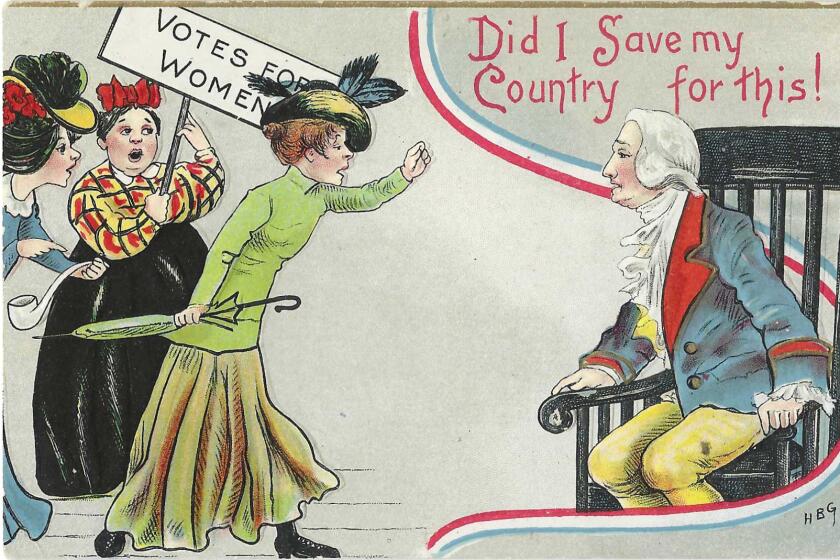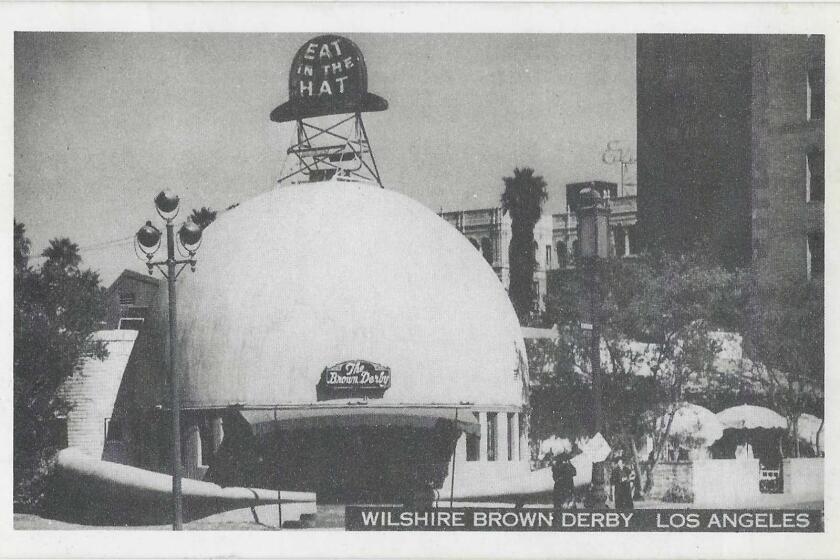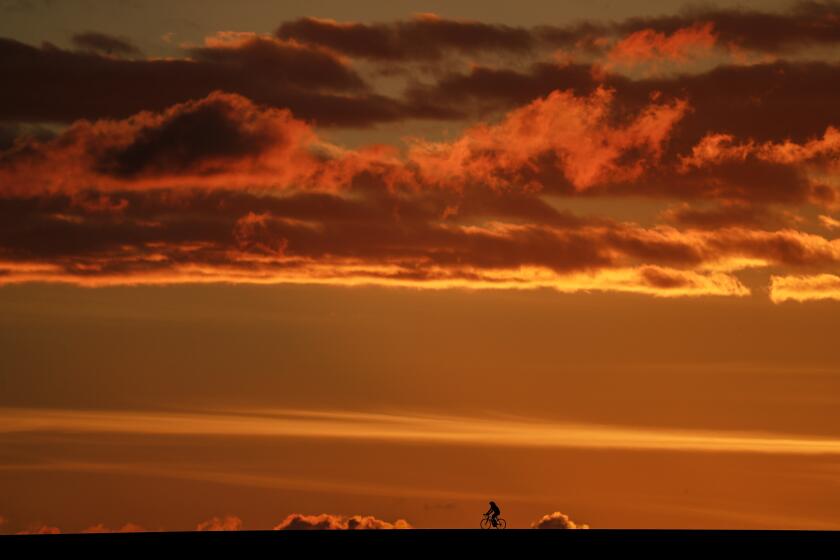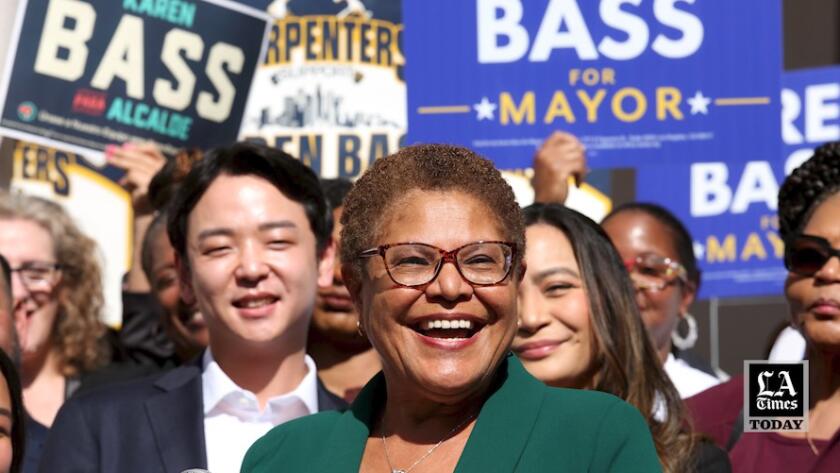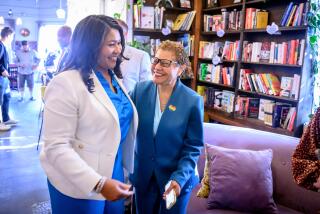Karen Bass may soon be the first woman elected L.A. mayor. Here’s who blazed the trail
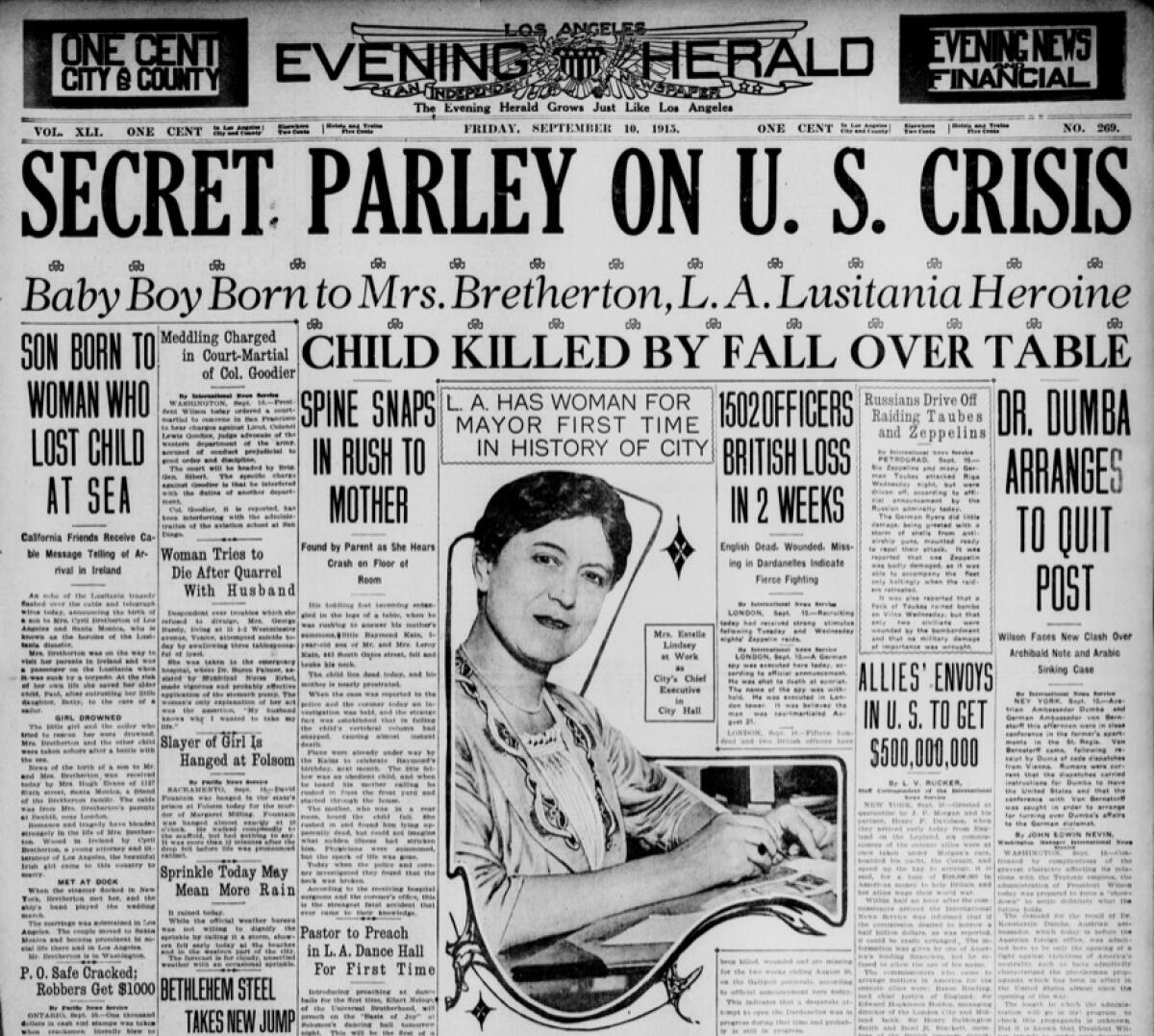
Which of these cities is not like the others? Chicago, Atlanta, Las Vegas, Houston, Los Angeles, San Francisco, Phoenix, Boston, El Paso.
Stumped?
It’s Los Angeles, for this reason:
In its 241 years, as pueblo and as city, Los Angeles has never elected a woman as mayor. It shares this curious carve-out with that other huge, azure-blue city, New York, and it’s distinctly odd for L.A., where every one of the county’s five supervisors is a woman.
And we still don’t know whether the 2022 election will break that streak.
Women have certainly run for mayor of L.A. The onetime City Council member and former city controller Wendy Greuel made it past other candidates and into the runoff in 2013, but lost to the present mayor, Eric Garcetti. State controller Kathleen Connell had a go at it in 2001, as did departing L.A. councilmember Jan Perry in 2013.
Get the latest from Patt Morrison
Los Angeles is a complex place. Luckily, there's someone who can provide context, history and culture.
You may occasionally receive promotional content from the Los Angeles Times.
One woman ran six times for mayor, the last in 1993, not long before she died. Hers was principally a performance candidacy — quixotic and merry. Not that Eileen Anderson didn’t have some meaty ideas: youth centers, rehab centers, trade schools, police foot patrols, and hiring the homeless to clean up graffiti, beaches and parks. On a cable news interview, Anderson sang her platform, and for an encore did “Danny Boy.” She ‘fessed up to her criminal record: arrested outside Richard Nixon’s Western White House holding a sign reading “Send a Woman to the Paris Peace Talks to End All Wars,” and arrested at the Farmers’ Market for dancing an Irish jig to welcome Democratic presidential candidate Hubert Humphrey.
I best remember the unorthodox Ms. A. for standing on a street corner outside the old downtown Hall of Justice, wearing a modest green swimming costume and dancing around with a ball suitable to the season — a football, a basketball, a beach ball.
She was there so often that on the days she wasn’t, I worried about her health.
Women won the vote in California in a narrow election victory in October 1911. Here’s who fought for and against women’s suffrage.
Even more extraordinary a character was Margaret Rogers Miller, who in 1961 was one among 14 who filed papers to run for mayor. She “apparently will lead a feminist movement to get women a larger voice in government” is how The Times put it.
A publication called the Los Angeles Newsletter offered the opinion that she was “easily the most impressive of these dark horses,” an “attractive blonde woman lawyer who writes best-sellers … speaks well and makes an impressive appearance.”
Some things change only by millimeters. Decades before Joanne Rowling created Harry Potter under the pen name J.K. Rowling so as not to discourage boy readers, Miller wrote about a half a dozen novels as Garet Rogers — “Garet” for Margaret. Some were translated into German, French and Spanish and enjoyed a vogue in Britain, where they can still be found in used bookshops.
One, “Scandal in Eden,” from 1963, spins a story similar to the Fatty Arbuckle trial. But most are period novels about doctors and surgeons. Both of her parents were physicians, and Rogers was a pre-med student at Purdue before taking up law studies at USC. Another, “Lancet,” issued in paperback, is set in 18th-century London. Its lurid cover shows a bare-breasted woman lying on a surgical table in an operating theater full of leering men. Standing in front of her is a handsome surgeon in a fancy waistcoat, holding a glittering scalpel.
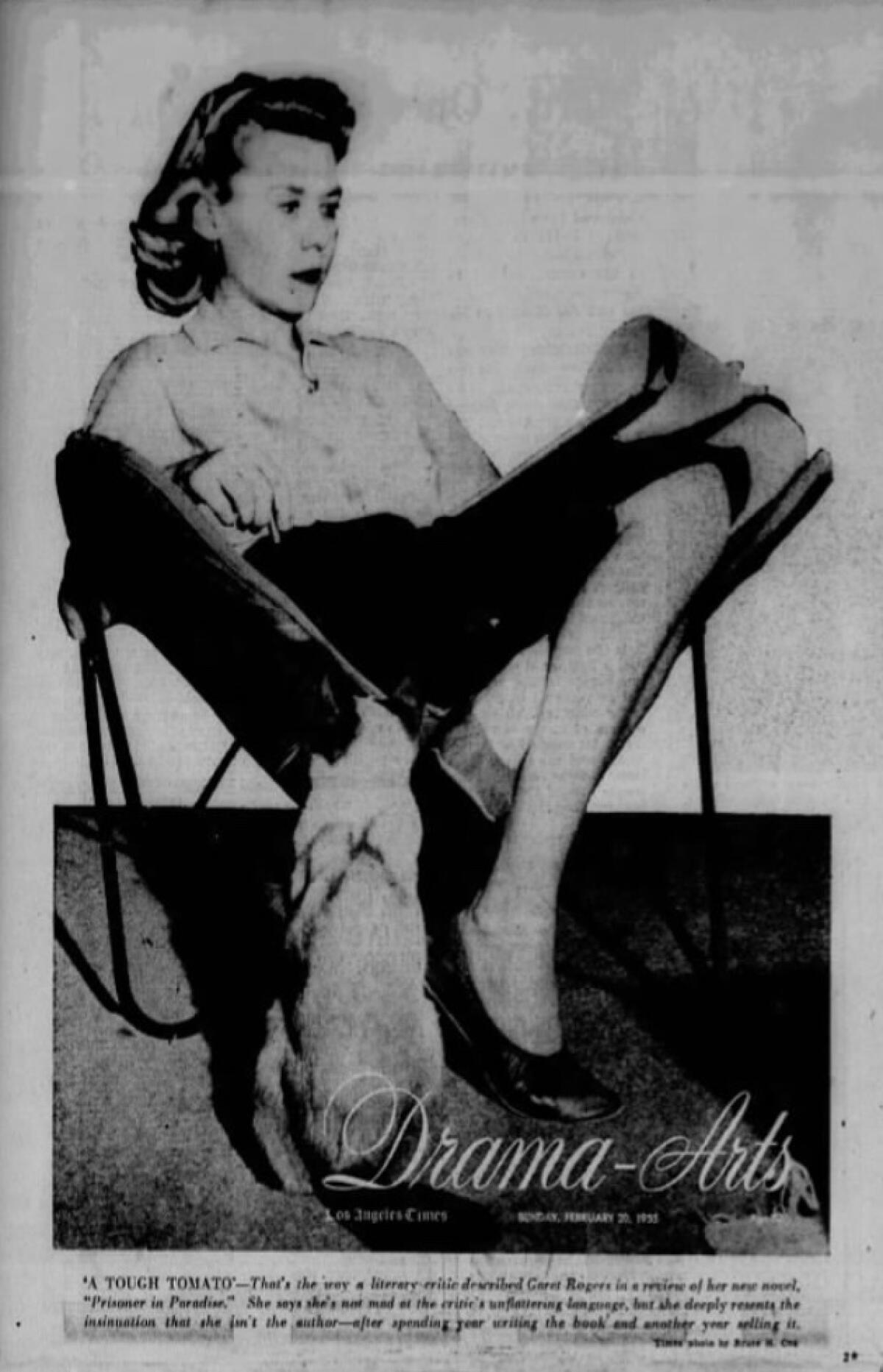
When her first book, “Prisoner in Paradise,” came out in 1955, The Times defended her against a book critic who took a look at the jacket photo and snarled, “If this blond dame did write this book, they grow some awfully tough tomatoes in California.” The Timesman defended her authorship — along with her “pleasing figure” and “good legs in velvet matador pants,” as she lounged at home with her two Siamese cats, Phobos and Deimos, for the two moons of Mars, their names meaning “fear” and “dread.”
On election day 1961, the lawyer/author/cat lover received 4,640 votes, coming in third to last among nine candidates.
One of the most brilliant civic campaign ads ever crafted appeared in L.A.’s 1993 mayoral primary. Linda Griego — a Los Angeles civic leader and innovator — was one of two women in a field of 24 candidates (the other was Anderson, with her charming but not muscular campaign).
The 1993 election was the first after the 20-year tenure of the august Black Mayor Tom Bradley, known as the “Sphinx of Spring Street” for his demeanor and bearing.
Griego’s ad showed life-size black-and-white cutouts of all the male candidates, and out from behind them, wearing a fire-engine-red suit — just the right color for the woman who founded the restaurant Engine Company 28 in an old fire station downtown — stepped Griego.
It underscored the male homogeneity of the field and her own standout status as a Latina. She finished out of the money, in fifth place, but stayed in the history books with her candidacy — and that ad.
In cases such as the French dip and the California roll, the L.A. inventor is disputed. Not so with the cheeseburger, which is SoCal from top bun to bottom.
You may hear the pedantic argument that L.A. has indeed already had a woman mayor — two, in fact. One may be technically accurate, the other, per the city charter of the time, not. Neither woman was elected but just stepped into a happenstance absence of senior city leaders.
Estelle Lawton Lindsey was the kind of politician The Times despised — a socialist, at a time just before World War I when progressives and even some socialists were standing pretty high in public favor here.
In June 1915, the former teacher and newspaper reporter became the first woman elected to the City Council. The Times described her later as “prominent in clubwork” — women’s clubs then had a formidable influence in civic life — “and an ex-comrade in the red-card local of Socialists. That she carries considerable weight is evidenced by the fact that her husband, an attorney, is in the superdreadnought class.”
She “became” mayor for one day in September 1915, when senior city pols were out of town. You got the sense that her appointment fell under “Oh, let’s give it to the little lady. What harm could she do in a day? And anyway, it’ll be good publicity for the city.”
A friendlier newspaper than this one, the Los Angeles Evening Herald, noted the event on the front page, beginning its story with the kind of comments that were still being used about women pols for decades after: “Carefully adjusting her hair and making use of a powder puff, councilwoman Estelle Lawton Lindsey today entered the city hall as the first woman mayor of Los Angeles, or of any other city of the first class. Mrs. Lindsey’s administration will probably last but a day. Mayor Sebastian is out of the city.”
Moviemakers, painters and authors have long opined on the quality of L.A.’s light. A Caltech scientist illuminates on why our light is so remarkable.
When she was asked what she’d like to do if she were “really and truly” mayor, her list was quite vigorous:
“I would establish many milk stations for distribution of pure, free milk. I would establish schools for mothers in the poorer districts of the city. I would establish a blacklist for drunkards to be placed in every saloon and compel saloon keepers to refuse to sell drinks to anyone on this list. I would put the tin tag ordinance through” (This was her idea to put metal plaques above the doors of every saloon, hotel and apartment building showing the name and address of the owner/landlord.)
She would “abolish the jail and substitute a farm.” (The county did establish a jail farm in the north end of the county. Actor Robert Mitchum served time doing chores there in 1949 after being busted with marijuana.) She proposed that the city do its own street paving, “saving $1,000,000 a year and providing employment for thousands of men. I would cause our streets to be lighted by [Los Angeles] aqueduct power. Also I would abolish loan sharks.”
She never did get the chance. Her tenure lasted one term. Her last civic service was as a city humane commissioner during World War II.
Decades later, it was determined that the city charter of the time didn’t allow for Lindsey’s appointment as mayor, not even for a day.
That nugget was unearthed when Councilmember Roz Wyman, the woman who brought the Dodgers to Los Angeles and who died last month, became mayor for a day, and maybe more than once.
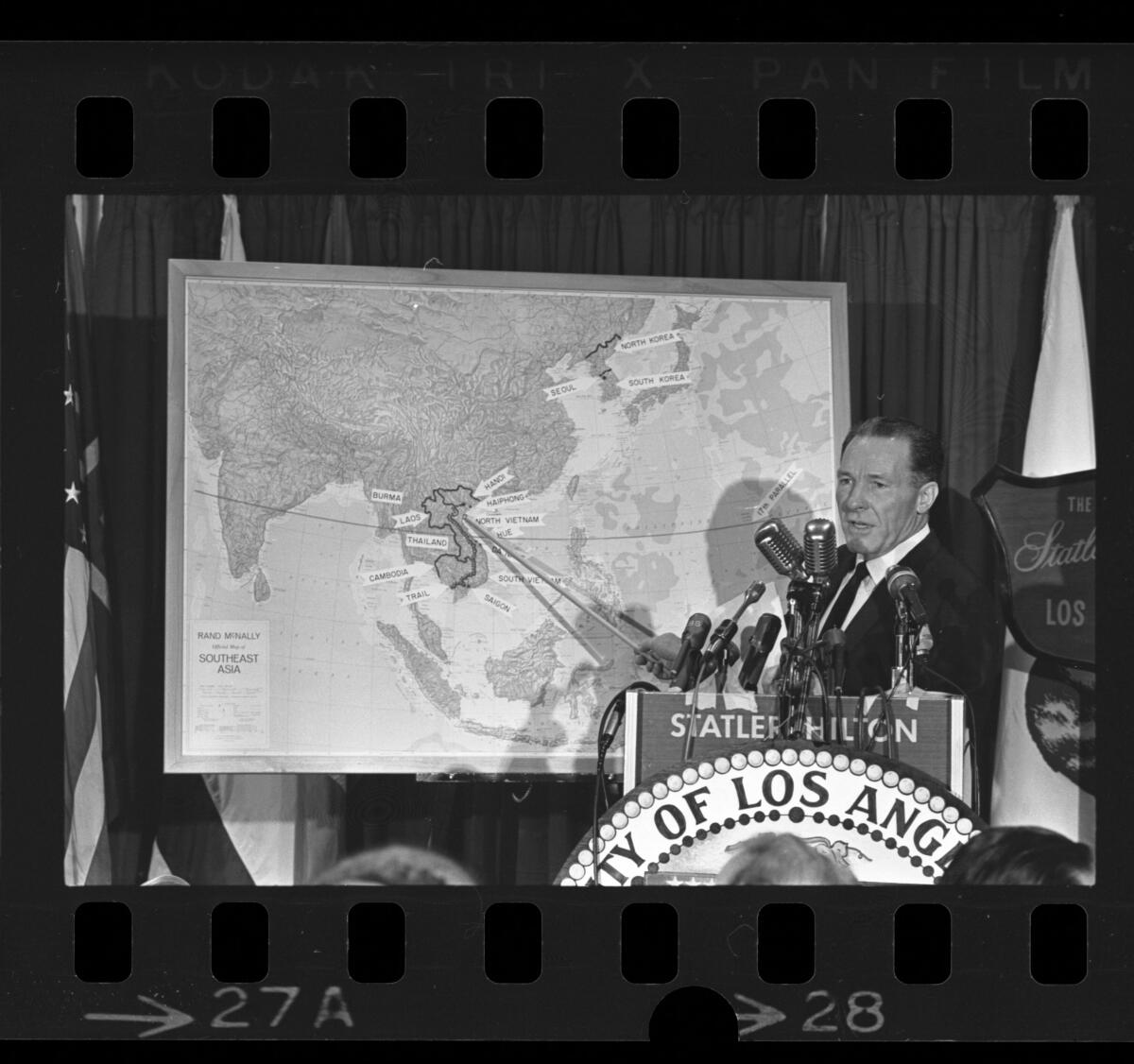
In November 1963, both Mayor Sam Yorty, who was on the road so often his nickname was “Travelin’ Sam,” and the council’s president were out of town, and that advanced Wyman into the job of acting mayor.
In Los Angeles, the nonpartisan mayorship hasn’t exactly been a stepping stone to loftier office. Yorty tried running for president as a Democrat in 1972 but flopped in the New Hampshire primary.
Mayor Tom Bradley ran twice for governor, in 1982 and 1986, and lost both times — by barely a percentage point the first time. Former mayor Richard Riordan lost out in the Republican gubernatorial primary in 2002, and former mayor Antonio Villaraigosa, a Democrat, failed to make the cut in 2018.
Oh, that newspaper bit about council member Lindsey and the powder puff?
That wasn’t any kind of an outlier. In 1957, when Zelma Bogue was chosen by her fellow council members to serve as Glendale’s mayor, The Times launched its story by noting that Mrs. Bogue — women’s marital status was always front and center — would not be redecorating her predecessor’s office. “There will be no feminine furbelows.”
And in 1966, Monterey’s woman mayor, Minnie Coyle, was busy prepping for a visit to the city by the first lady, Lady Bird Johnson. The news angle? The mayor “hasn’t had time to shop for a new outfit” for the visit.
Watch L.A. Times Today at 7 p.m. on Spectrum News 1 on Channel 1 or live stream on the Spectrum News App. Palos Verdes Peninsula and Orange County viewers can watch on Cox Systems on channel 99.
Explaining L.A. With Patt Morrison
Los Angeles is a complex place. In this weekly feature, Patt Morrison is explaining how it works, its history and its culture.
More to Read
Get the latest from Patt Morrison
Los Angeles is a complex place. Luckily, there's someone who can provide context, history and culture.
You may occasionally receive promotional content from the Los Angeles Times.
